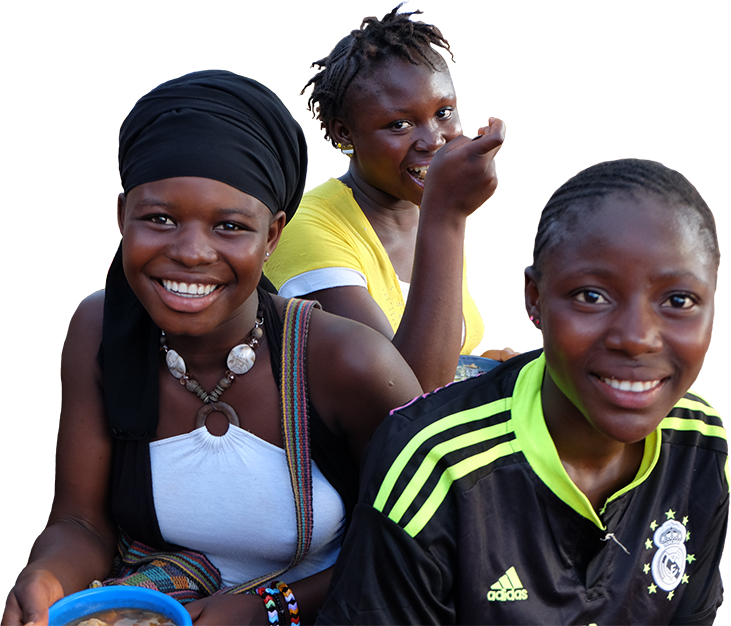Formative research helps us understand the challenges and opportunities that adolescents face, as well as barriers and enablers to behavior change. Routine monitoring is needed to assess progress toward program goals and national targets. Implementation research and evaluations are needed to identify effective approaches. The Adolescent Nutrition Resource Bank includes a variety of protocols and tools for monitoring, evaluating, and researching adolescent nutrition. If you have relevant monitoring, evaluation, or research resources, please send them to info@advancingnutrition.org.
We found 128 resource(s)
Nutrition: 10 Messages for Children to Learn and Share
Informational Infographic published by Children for Health in
This poster presents ten key PCAANS nutrition messages for children to learn and share, including information about malnutrition, good nutrition and healthy foods, growth and nutrition screening, hygiene, and food safety and preparation.
Socio‐Cultural and Economic Determinants and Consequences of Adolescent Undernutrition and Micronutrient Deficiencies in LMICs: A Systematic Narrative Review
Journal Article published by Wiley Periodicals, Inc. in
This article is a review of the literature on the socio-cultural and economic (SCE) determinants and consequences associated with undernutrition among adolescents in LMICs. The review underscores the importance of the range of context‐specific SCE factors that influence adolescent nutritional status.
Agro-Ecological Zone and Farm Diversity Are Factors Associated with Haemoglobin and Anaemia among Rural School-Aged Children and Adolescents in Ghana
Journal Article published by in
This study analyzed secondary data from an impact evaluation of the Ghana School Feeding Program to determine the severity of anemia and factors associated with anemia and hemoglobin (Hb) status among rural school-age children (SAC) ages 6 to 9 and adolescents ages 10 to 17 in Ghana. The study found that anemia is a severe public health problem…
Strengthening Nutrition-Specific Policies for Adolescents in Indonesia: A Qualitative Policy Analysis
Journal Article published by Academic Journal in
This article analyzed policy-related documents and conducted stakeholder interviews in order to identify nutrition-specific policies targeting adolescents in Indonesia. The two policies identified target iron-deficiency anemia through supplementation and school-based obesity screening. The authors recommend multisectoral, coordinated efforts…
Potential Interventions Targeting Adolescent Nutrition in Indonesia: A Literature Review
Journal Article published by Academic Journal in
This article summarizes the existing evidence on the impact of interventions specifically among adolescents in Indonesia. Evidence was limited but supports the implementation of the following nutrition-specifc interventions: (i) iron–folic acid supplements, paired with antihelminths delivered at scale via school-based platforms and through health…
Adolescent Girls Empowerment Program (AGEP): Nutrition Brief
Training Material published by Population Council in
This project brief describes the impact of the Adolescent Girls' Empowerment Program (AGEP) on nutrition. AGEP enrolled >11,000 vulnderable adolescent girls, approximately half of whom were randomized to receive nutrition training sessions (3 for younger adolescents, 5 for older adolescents) as part of the AGEP curriculum. The intervention…
Adolescent Nutrition in Timor L'Este: A Formative Research Study
Technical Report published by Australian Aid, TOMAK, WFP in
The purpose of this formative research was to inform the development of interventions, activities, and materials that support adolescent nutrition in Timor Leste from an SBC perspective. The study's key findings and recommendations relate to such issues as snacks at school, drinks, nutrition-related illness, cultural and gender norms,…
Formative Research to Inform Adolescent Programming in Cambodia: Engagement for Health, Nutrition, and Sustainable Development
Technical Report published by WFP in
This formative qualitative research study, conducted in three Cambodian provinces, focused on the perspectives, experiences, and suggestions of adolescent girls and their communities related to adolescent health and nutrition. Based on the study's findings, evidence-based recommendations were created to improve the design of nutrition-…



